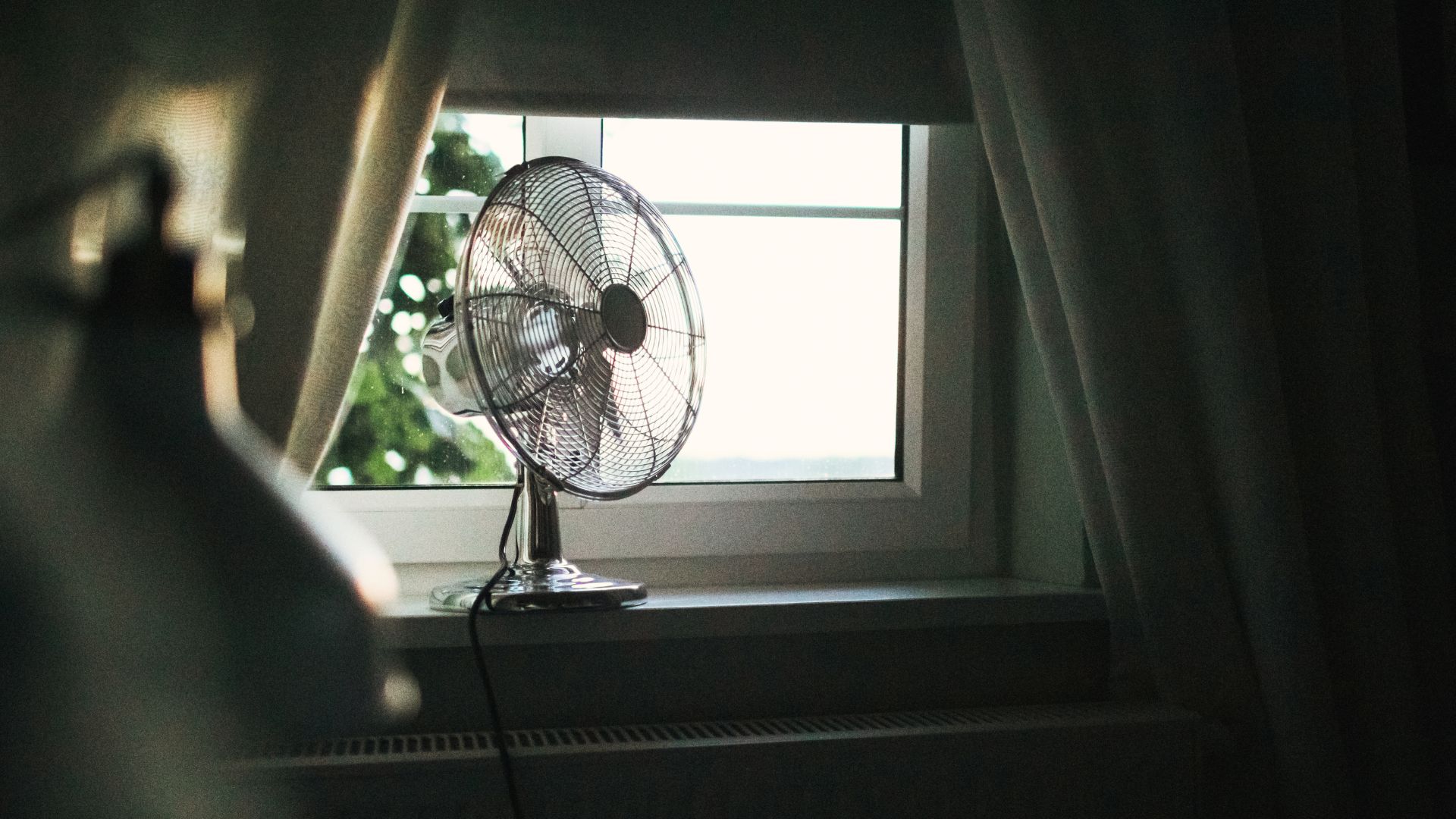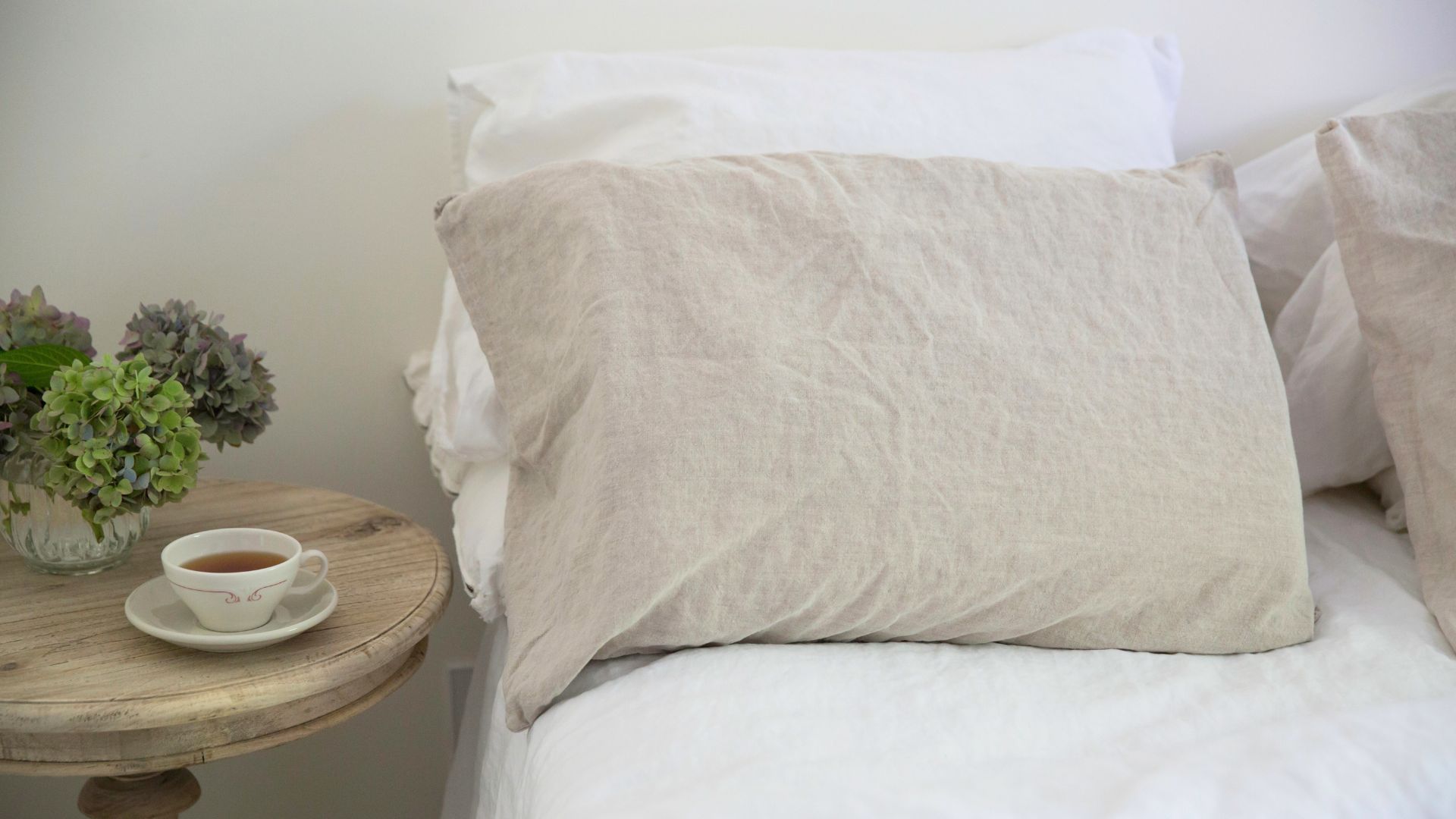What is the ideal temperature for sleeping? Sleep experts reveal it's more specific than you might think
We asked the sleep experts what is the ideal temperature for sleeping and how we can achieve it for the perfect night's sleep.


After months of hot sleepless nights spent tossing and turning atop the covers, you may be wondering what the ideal temperature for sleeping is. What is that temperature sweet spot for an undisrupted and restful sleep? Well, these sleep experts have the answer.
There are lots of conditions that can have a major effect on us through the night as we sleep. Temperature, however, plays one of the biggest roles. It’s the most physically disruptive to both the quality of our sleep and our ability to fall asleep in the first place.
As Dr Sue Peacock, a consultant health psychologist who specialises in sleep disorders and runs the sleep programme Sleep Well with Dr Sue, says, “Heat can disrupt our sleep cycle by altering the duration and the quality of different sleep stages. Hot nights mean an increase in how long it takes to get to sleep, how long it takes to get into a deep sleep, and the number of times you’ll wake during the night - and those sharing a bed may suffer even more."
With this in mind, if you're looking to learn how to sleep better this week, it's worth learning about the ideal temperature for a good night's sleep. Here, woman&home speaks to several sleep specialists to reveal the best temperature for sleep and the quick fixes you can make in your bedroom for a better night's sleep.
What is the ideal temperature for sleeping?
The answer is a lot more specific than you might’ve guessed. "The ideal temperature for a good night's sleep sits at around 16 - 18⁰C for adults," says CEO and sleep expert at Happy Beds, Rex Isap.
Much like everything else to do with our health, it's important to remember that we're all different when it comes to sleep hygiene and how we adjust our sleeping temperature. "Everyone is unique in how they prefer their sleeping conditions to be, whether you're a risk-taking individual who sleeps with the window open or you opt for three blankets and a duvet to drift off," says Isap.

What temperature is too hot to sleep in?
We’re all most definitely familiar with the evenings when it just feels too warm to fall asleep, but when does a warm night become harmful to us? "Above 24⁰C or below 12⁰C are unhealthy room temperatures as a cold this cold affects your ability to nod off, whereas heat can cause restlessness,” Isap explains. So whether you find yourself in the middle of a heatwave or a snow storm it's a good idea to prep your sleep space.
Sign up to our free daily email for the latest royal and entertainment news, interesting opinion, expert advice on styling and beauty trends, and no-nonsense guides to the health and wellness questions you want answered.
Luckily, even in the worst of conditions, our bodies are designed to protect us the best they can in the form of thermoregulation. This is how our bodies prepare us for sleep by slowly lowering our overall temperature as the day goes on, starting from around 2 pm. Isap says that most people will hit their lowest body temperature at 5 a.m. or around two hours before waking up. This is when your body's temperature will begin to increase as your energy levels start to peak for the day ahead.
How can I sleep in hot climates?
While our body may be able to regulate itself to a certain degree, there is such a thing as 'too hot'. Nuffield Health's sleep expert and clinical exercise specialist Charlotte Corson recommends sleeping with a frozen water bottle and taking a cold shower or bath just before bed to learn how to sleep in the heat on these occasions.
Ensuring you’re properly hydrated is also important, she says, given that heat dehydrates us. It's the perfect excuse to try out one of the best sleep teas for relaxing at bedtime. She does however warn of being too hydrated as the multiple trips to the toilet may just disrupt your sleep even more.
Our minds also play a key role in how well we sleep says Corson. "The body and the mind are so interlinked. There is huge value in reminding ourselves that ‘we might not sleep as well as we normally do, but it will pass and this heat will not last forever’,” she says. “If we get into a cycle of negative thinking and say to ourselves we’re going to be too hot to sleep, then guess what….we will be too hot to sleep! Hello, self-fulfilling prophecy.”

How to maintain the ideal temperature for sleeping
1. Consider the material and colour of your bedding
When it comes to your chosen bedding and duvet, it’s important to consider what fabrics and thickness of materials are most suited for your sleeping environment. Isap has two recommendations when it comes to bedding, both made from natural fibres. Wool has the ability to absorb up to 30% of its weight in moisture without feeling damp, therefore making it a great choice for anyone who is over-heating and sweating through the night.
Alternatively, linen is just as effective. Isap says, “Besides being breathable and temperature regulating, a common feature of natural bedding, you'll notice that linen bedding is exceptionally hygienic. Being both antiseptic and antibacterial, linen is often considered one of the cleanest fabrics and actively works to prevent bacteria from growing."
As well as material, the colour of your bedding is also very important too. As is true with clothing, darker-coloured sheets absorb light which means they are more likely to produce more heat. Whereas lighter colours, white specifically, reflect light meaning they stay cooler. It's also best to know how often should you wash your sheets, as there's nothing quite like fresh bedding to get you ready for a good night's rest.
2. Eat less before bedtime
No more midnight snacks! Sleep experts say that right before you go to bed is far from the best time of day to snack as it can increase your body temperature and lead to a hot restless night's sleep. This is because your body creates heat naturally when it digests food, so it’s best to allow for a few hours between your last meal and your bedtime.
If you are particularly hungry then it's a good idea to eat, but it should be something easily digestible like toast, a banana, pasta or white rice. These carbohydrate-based foods move through the digestive system quickly, unlike fibrous or high-protein snacks.
3. Invest in a fan
This may seem like the most obvious way to keep your room cool but there's a reason for that. Isap says, “Fans are portable and do a great job at not only blowing out cool air but circulating air around a room so it's no longer stagnant.”
“But are you making the most of your bedroom fan?” He asks. “Fill a fairly large container with ice and position your fan so it blows past the container. The air you receive will be even cooler to provide some welcome relief.”
Picking a good quality fan is a great investment that you'll get your money's worth from but just make sure you find one that's quiet. That constant whirring is another disruption altogether, and could be why you keep waking up early.
It’s also a good idea to place your fan right next to an open window so helps the cool outdoor air travel faster and keeps your temperature at a comfortable level whilst you sleep. If you're looking to invest in a new fan, considering this warm weather doesn't appear to be going anywhere soon, take a look at our roundup of the best fan deals right now.
4. Swap regular curtains for blackout curtains
You may already have black-out curtains keeping out the pesky sunlight, lie-ins must be protected after all. But there’s also another great advantage to them as well. Not only does the blackout design mean that all direct sunlight is kept out of your room but they are also great for keeping the heat in during the winter months.
On especially hot days, Isap recommends keeping the curtains closed throughout the day to keep the sunlight and heat out. That way when you do go to bed, your room is a lot cooler and you can open your window to let all that cold night air in.
5. Sleep in the coolest sleeping position
According to sleep experts, the positions in which we sleep can massively affect our body temperature through the night. Isap says, “The best sleep positions are ones that keep you cool and help reduce sweating. That’s why I’d recommend falling asleep on your back. It keeps your head elevated, allowing air to circulate your face and, therefore, allows you to feel cooler overall.”
Sleeping on our backs, however, is not everyone’s cup of tea and sleeping in a position you’re not used to can keep you awake for just as long as when you’re too warm or cold. So if that's not for you, try sleeping on your side with your face turned upright so that air can reach and circulate around your face. This, in turn, will help with any excessive sweating you might be experiencing during the night.

Emily joined woman&home as a staff writer after finishing her MA in Magazine Journalism from City University in 2023. After writing various health and news content, she now specialises in lifestyle, covering unique cleaning hacks, gardening how-tos, and everything to help your houseplants thrive.